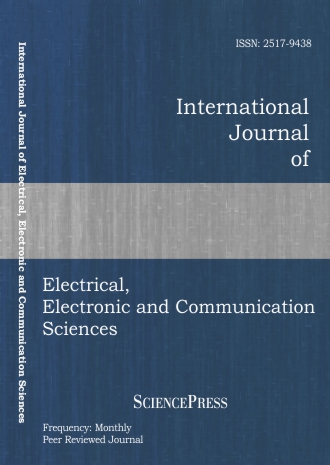
Scholarly
Volume:6, Issue: 3, 2012 Page No: 355 - 360
International Journal of Electrical, Electronic and Communication Sciences
ISSN: 2517-9438
1483 Downloads
Higher Frequency Modeling of Synchronous Exciter Machines by Equivalent Circuits and Transfer Functions
In this article the influence of higher frequency effects in addition to a special damper design on the electrical behavior of a synchronous generator main exciter machine is investigated. On the one hand these machines are often highly stressed by harmonics from the bridge rectifier thus facing additional eddy current losses. On the other hand the switching may cause the excitation of dangerous voltage peaks in resonant circuits formed by the diodes of the rectifier and the commutation reactance of the machine. Therefore modern rotating exciters are treated like synchronous generators usually modeled with a second order equivalent circuit. Hence the well known Standstill Frequency Response Test (SSFR) method is applied to a test machine in order to determine parameters for the simulation. With these results it is clearly shown that higher frequencies have a strong impact on the conventional equivalent circuit model. Because of increasing field displacement effects in the stranded armature winding the sub-transient reactance is even smaller than the armature leakage at high frequencies. As a matter of fact this prevents the algorithm to find an equivalent scheme. This issue is finally solved using Laplace transfer functions fully describing the transient behavior at the model ports.
Authors:
References:
[1] D. R. Gomes, I.E. Chabu, "Studies on electrical stresses in rotating